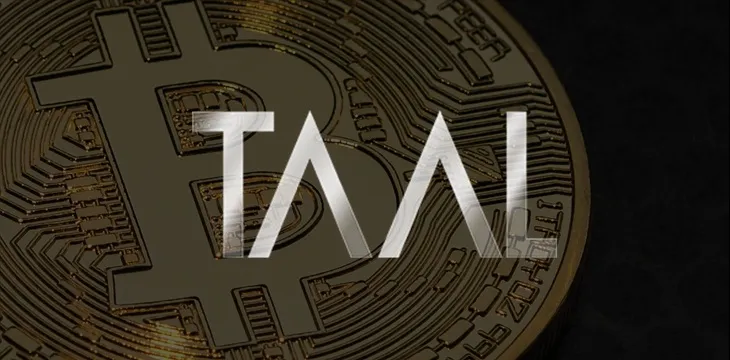|
Getting your Trinity Audio player ready...
|
It’s been a big year for TAAL Distributed Information Technologies, which recently appointed a new CEO and has reoriented itself to a blockchain transaction processing-based model for core services. In doing so, the company aims to become a vital infrastructure provider for an entirely new kind of digital economy—much like Silicon Valley pioneer Cisco did in the 1980s.
The Vancouver-based firm first listed on the Toronto Stock Exchange in June 2015. Entrepreneur and CoinGeek owner Calvin Ayre is a TAAL stakeholder and was recently appointed to its advisory board.
TAAL releases 2019 financials
TAAL this week also released its 2019 Fiscal Year End Financial Results, noting that it is “uniquely positioned to take advantage of business opportunities emerging from the new industry dynamics.”
These new dynamics include a future that changes the way online data is stored and processed. With Bitcoin restored to its original vision as an immutable public ledger and payment network, all manner of data may be handled on-chain and in a way that permits levels of access, added security, and most importantly, auditable permanence.
TAAL reported $17,145,804 in total revenue at the end of December 2019. It had working capital of $22,048,009 of which $11,024,009 was unallocated to provide liquidity for 2020. Its Digital Asset Mining business (started May 1, 2019) generated $15,489,428 over the period.
Bitcoin SV (BSV) is central to TAAL’s mission and vision for the future. Currently this is the only blockchain platform with the technological capability to process enterprise-tier data volumes at a reasonable speed and cost. CEO Jerry Chan said:
“Our initial year of revenue-generating operations has been marked by impressive growth, accelerating TAAL’s mission to be a world class, vertically integrated, blockchain infrastructure and service provider. In 2020, the blockchain and digital assets industry will face some of its biggest development challenges, starting with the influential Bitcoin halving event. We are positioning ourselves to face these changes as an industry leader and innovator in this sector, by taking a long-term view of the potential of blockchain technology, and investing in the future of Bitcoin SV.”
The firm also recently signed a 10-year intellectual property deal with Bitcoin protocol developer nChain. This deal gives TAAL non-exclusive access to nChain’s patent portfolio, which contains technologies essential to building and serving a blockchain-based economy.
Changing the face of blockchain infrastructure services
As Chan noted, the recent Bitcoin block subsidy halvings have had an impact on transaction processing operations (known commonly as “miners”) and will continue to impact their future profits. Those operating on the Bitcoin Core (BTC) blockchain saw their profits halved literally at the tick of the clock, at a time when the BTC unit price has remained in US$8,000-9,000 territory.
This means processors for all Bitcoin-named transactions can (or should) no longer rely on the regular block subsidy as a profit model. For BTC in particular, with its limited block capacity, there is deep uncertainty over whether transaction processors will be able to sustain their business much longer.
The image of processing operations is also changing. “Mining” was once a hobbyist pursuit but the growth of the digital asset industry and technological advances have seen them move from garages to massive data centers. With this evolution comes an increasing demand for professionalism and service level guarantees.
Several firms are publicly listed and often focus on specific blockchains, such as BTC or Ethereum. These include HIVE Blockchain, Hut 8, Riot Blockchain, Canaan, and Argo. Aside from BTC’s profit issues, there are also questions about the very protocols on which these networks are based. BTC developers have tinkered with the way their blockchain stored data and cryptographic signatures required for proof, while Ethereum plans (at some stage) to abandon the Proof-of-Work concept altogether—which, if implemented, would render its transaction processors’ equipment obsolete.
TAAL’s vision involves realizing the importance of processing huge data volumes and structuring itself in a way that derives profits from transaction fees, rather than block subsidies. Both require a focus on quantity as well as quality, with equipment and software that meets the tough requirements of large banks, governments, and other businesses.
It is also implementing the Miner ID protocol and Miner API (MAPI) to allow transaction processors to specialize in providing services to different types of enterprises.
Other mining/processing operations have been slower to realize this evolution in blockchain and its role in the future economy, something that will likely affect their profitability and investment levels.
The same is true for blockchain protocols themselves. Only Bitcoin BSV has positioned itself to take on this data-based future. The technology industry is famous for rewarding its visionaries and punishing the laggards, and those who recognized Bitcoin as something far more than has been recognized so far will prosper.

 06-30-2025
06-30-2025 





